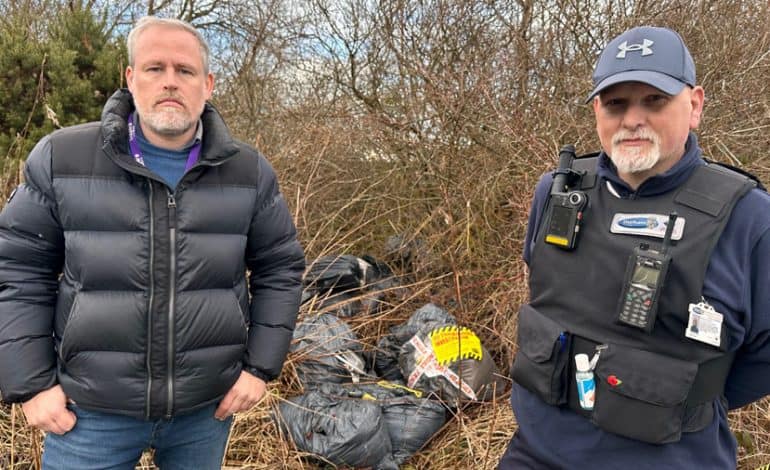A council is continuing to crackdown on fly-tipping, with hundreds of fixed penalty notices issued, multiple vehicles seized and fines and court charges topping £134,000 secured in just over three years.
Between 1 June 2021 and 31 December 2024, Durham County Council issued 181 fixed penalty notices (FPN) for fly-tipping offences.
A further 187 FPNs were issued to unlicenced waste carriers, along with 60 to householders who failed in their duty to ensure waste was disposed of responsibly.
In total, this resulted in FPN fines of £47,190, which partly reflects the council’s decision to stop providing discounts to people who pay FPNs for fly-tipping early to act as a further deterrent.
Eighty-two offenders were prosecuted in court and ordered to pay a total of £81,278 in fines and charges, and dozens more cases are set to go before magistrates.
A total of 412 stop checks were carried out, 29 vehicles repeatedly used for waste crime activities were seized, and 198 fly-tippers were captured on the council’s growing network of cameras in fly-tipping hotspots.
The local authority’s fly-tipping awareness campaign, Operation Stop It, is promoted across its social media platforms, including the neighbourhood warden Facebook page, which reached 3.2 million people on social media in 2023/24 alone.
These activities have contributed to a significant reduction in fly-tipping in County Durham in recent years, with the number of reported incidents down from 8,286 in the 12 months leading up to 1 June 2021 to 5,752 in 2024.
Cllr Mark Wilkes, Durham County Council’s cabinet member for neighbourhoods and climate change – pictured above (left) with neighbourhood warden Steven Stocks – said: “We know how much fly-tipping impacts on residents, businesses and wildlife, and that’s why, in June 2021, we re-organised our neighbour warden teams to make them even more effective at tackling the issue.
“Together with the removal of discounts for people who pay fines early, this has helped bring about a reduction in fly-tipping in the county.
“However, we will not be happy until we eradicate it completely. Seventy per cent of all waste fly-tipped in County Durham started out in someone’s home, which is why education is vital.
“Whether that be raising awareness of the many responsible ways to recycle and get rid of waste in the county, or teaching people about the harm fly-tipping causes and what can happen to offenders who get caught.
“For example, some people might not realise that if they leave unwanted items in the street or pay someone to remove it without carrying out proper checks, they could be held to account if it is dumped illegally.
“If it’s your waste, it’s your responsibility so always ask to see a waste carrier’s licence.”
Durham County Council operates Household Waste and Recycling centres across the county, which are free for households. To find out more, visit www.durham.gov.uk/hwrc.
For information about other ways homes and businesses can dispose of waste responsibly – including how to arrange a bulky item collection – and to find out how to report fly-tipping, visit www.durham.gov.uk/flytipping.








